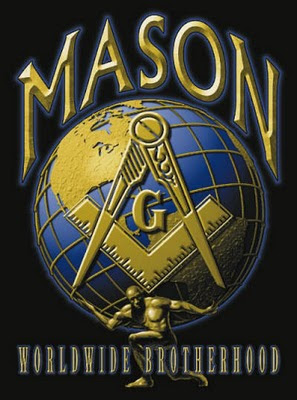skip to main |
skip to sidebar
Expansion
 With a social base that was urban, mercantile, and hence geographically mobile, freemasonry spread quickly to the Continent. A Parisian lodge was in existence by 1725, and on the eve of the French Revolution there were an estimated 600 lodges in the monarchy as a whole. In 1770 Paris alone had some 10,000 freemasons, and in 1789 France's masonic population ranged between 50,000 and 100,000. In the Dutch Republic lodges were established in The Hague and in Amsterdam in the 1730s, and in Germany some 450 lodges were founded between 1737 and 1789. Freemasonry took root somewhat later in Austria, where the devoutly Catholic Maria Theresa (ruled 1740–1780) was hostile to the order after the papacy formally condemned it (1738) on the grounds of its alleged deism. But her son and successor, Joseph II (ruled 1780–1790), himself joined a lodge and encouraged the movement during the early, liberal years of his reign. By 1784 there were sixty-six lodges in the monarchy, althou
With a social base that was urban, mercantile, and hence geographically mobile, freemasonry spread quickly to the Continent. A Parisian lodge was in existence by 1725, and on the eve of the French Revolution there were an estimated 600 lodges in the monarchy as a whole. In 1770 Paris alone had some 10,000 freemasons, and in 1789 France's masonic population ranged between 50,000 and 100,000. In the Dutch Republic lodges were established in The Hague and in Amsterdam in the 1730s, and in Germany some 450 lodges were founded between 1737 and 1789. Freemasonry took root somewhat later in Austria, where the devoutly Catholic Maria Theresa (ruled 1740–1780) was hostile to the order after the papacy formally condemned it (1738) on the grounds of its alleged deism. But her son and successor, Joseph II (ruled 1780–1790), himself joined a lodge and encouraged the movement during the early, liberal years of his reign. By 1784 there were sixty-six lodges in the monarchy, althou gh Joseph's successor, the archconservative Francis II, outlawed freemasonry in 1794 as a subversive Jacobin import. The spread of freemasonry was also belated elsewhere on the European periphery. Madrid's first lodge was founded relatively early (1728) by an exiled English Jacobite, but opposition by the church curbed the growth of Spanish freemasonry until the enlightened reign of Charles III (ruled 1759–1788). Russia's first lodges were founded by and for foreigners, but under Catherine the Great (ruled 1762–1796) freemasonry for a brief time became fashionable among enlightened circles at the University of Moscow. But by the 1790s Catherine, like her Austrian counterpart, had begun to suppress freemasonry as politically subversive.
gh Joseph's successor, the archconservative Francis II, outlawed freemasonry in 1794 as a subversive Jacobin import. The spread of freemasonry was also belated elsewhere on the European periphery. Madrid's first lodge was founded relatively early (1728) by an exiled English Jacobite, but opposition by the church curbed the growth of Spanish freemasonry until the enlightened reign of Charles III (ruled 1759–1788). Russia's first lodges were founded by and for foreigners, but under Catherine the Great (ruled 1762–1796) freemasonry for a brief time became fashionable among enlightened circles at the University of Moscow. But by the 1790s Catherine, like her Austrian counterpart, had begun to suppress freemasonry as politically subversive.
 With a social base that was urban, mercantile, and hence geographically mobile, freemasonry spread quickly to the Continent. A Parisian lodge was in existence by 1725, and on the eve of the French Revolution there were an estimated 600 lodges in the monarchy as a whole. In 1770
With a social base that was urban, mercantile, and hence geographically mobile, freemasonry spread quickly to the Continent. A Parisian lodge was in existence by 1725, and on the eve of the French Revolution there were an estimated 600 lodges in the monarchy as a whole. In 1770  gh Joseph's successor, the archconservative Francis II, outlawed freemasonry in 1794 as a subversive Jacobin import. The spread of freemasonry was also belated elsewhere on the European periphery. Madrid's first lodge was founded relatively early (1728) by an exiled English Jacobite, but opposition by the church curbed the growth of Spanish freemasonry until the enlightened reign of Charles III (ruled 1759–1788).
gh Joseph's successor, the archconservative Francis II, outlawed freemasonry in 1794 as a subversive Jacobin import. The spread of freemasonry was also belated elsewhere on the European periphery. Madrid's first lodge was founded relatively early (1728) by an exiled English Jacobite, but opposition by the church curbed the growth of Spanish freemasonry until the enlightened reign of Charles III (ruled 1759–1788). 
Aucun commentaire:
Enregistrer un commentaire